About splinter.me
splinter.me is a platform for professionals and employers that uses the benefits of big data and social recruiting.
It aggregates and analyses information from 15+ online platforms in order to create 360 degrees profile, that stands at the basis of matchmaking between talents and work opportunities.
The Team
Ambassadors
We are a startup in public beta, with expected official launch by the end of 2013. We have made it so far by bootstrapping and with the help of a great angel investor. We are currently looking for seed investment.
Media Relations
Partners

SoftLayer
splinter.me is now part of SoftLayer's Catalyst Startup Program
Find more info about the program →Catalyst is core to our mission to enable next generation technologies and empower the entrepreneurs that will bring them to market.
SoftLayer Offical Website

VC4Africa partners with splinter.me to help its members better showcase their professional profiles
Partnership with the startup community VC4Africa through which their members are given now the possibility to display their splinter.me profiles on their member profiles and on their job applications inside the community.
VC4Africa is the largest and fastest growing community of entrepreneurs and investors building promising companies in Africa. At the moment it gathers 12.500+ members from 1000+ ventures in 30 African countries and investors with an interest in the region from 159 countries around the world.
read the full article →splinter.me and VC4Africa have teamed up to help African entrepreneurs showcase their talents FgrBgI5JnR
— billzimmerman (@billzimmerman)
"We see Splinter.me as one of the top online tools for job seekers to put their best foot forward" lLqDk0pD2C
— VC4Africa Mentorship (@VC4AfricaMentor)
Media
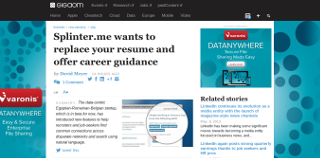
Splinter.me wants to replace your resume and offer career guidance
There are plenty of startups out there trying to revolutionize the job-seeking or hiring process, from TalentBin and Path.to to Silp, Somewhere and of course, in its own way, LinkedIn. But there may still be space for more.
Splinter.me will certainly be hoping so. Currently in beta, the Egyptian-Romanian-Belgian startup (welcome to the EMEA region) is trying its own data-centric spin on the subject. Splinter.me essentially wants to replace the resume with information automatically pulled in from the job-seeker’s social networks and any other platforms where information about them may reside.
read the full article →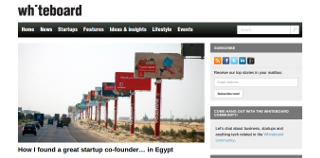
How I found a great startup co-founder… in Egypt
Lately I see so many entrepreneurs looking for a co-founder. Especially a tech one. You are probably in this “co-founder search mode” too. Boy, it’s not easy! He/ she needs to have the right expertise, be a good match, believe in the business and be a “job dropout” up for the startup journey.
Available options? Search inside friends and colleagues circles, search at startup events and post announcements on job boards. After trying the first two options myself, I discovered a much better alternative. If you are in this “co-founder search mode”, you might find this useful.
read the full article →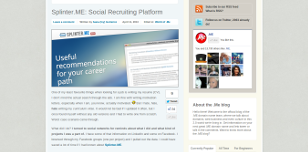
Splinter.ME: Social Recruiting Platform
Splinter.ME was created to automatically collect your personal information that is available on different social platforms. It then gives you an environment allowing you to design what your profile looks like. You can use these services for free, but there is more!
The cool thing is that the system learns what you spend your time with and what your interests are based on your activities in the networks you are signed up to! Based on that information, Splinter.ME hopes to provide optimized search results for recruiters because it knows much more about you than your normal CV would know.
read the full article →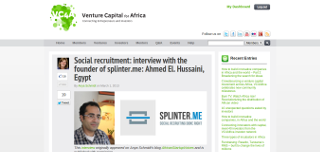
Social recruitment: interview with the founder of splinter.me: Ahmed El. Hussaini, Egypt
The other day I had the great pleasure of talking to splinter.me founder Ahmed El.Hussaini. The idea behind splinter.me is to provide a system that automatically collects your personal information, available on different social platforms.
read the full article →
Social Media to the Rescue: Egypt's Splinter Makes Résumés Obsolete
A year and a half ago my brother asked me to design and update his CV and I remember telling him, this is the social era man, I'm sure we will find a good web application that can collect some information from your facebook or twitter accounts...
read the full article →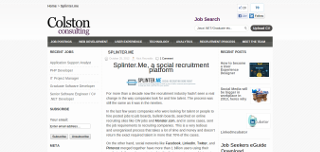
Splinter.Me, a social recruitment platform
For more than a decade now the recruitment industry hasn’t seen a real change in the way companies look for and hire talent. The process was still the same as it was in the nineties.
read the full article →




